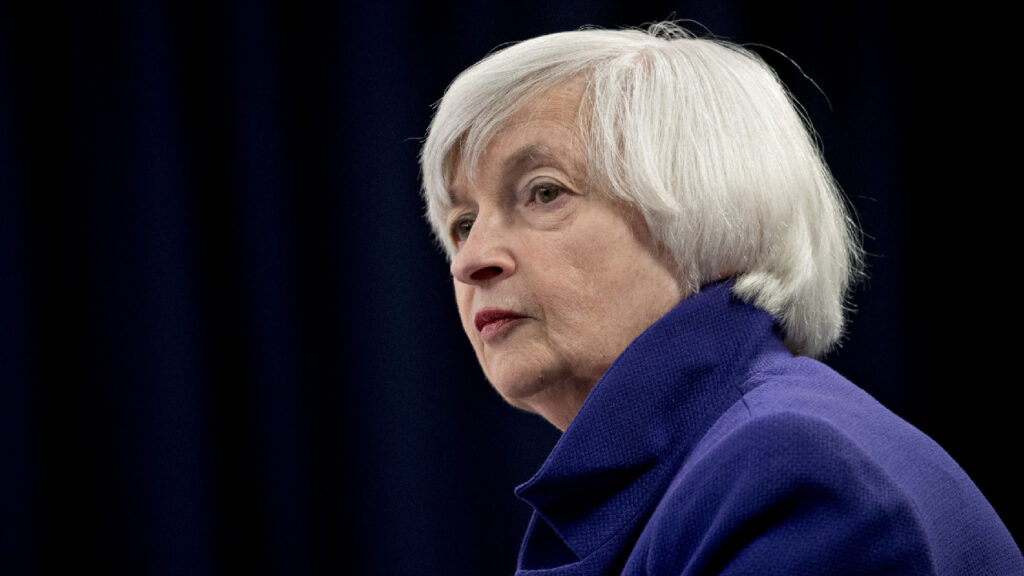Economic News
Global Leaders Cautiously Monitor US Debt Ceiling Impasse
NIIGATA, Japan—Global leaders, grappling with inflation and surging interest rates, now confront the struggle of increasing the US Debt Ceiling as the latest peril to their economic prospects.
The deadlock in Washington over raising the approximately $31.4 trillion borrowing threshold casts a shadow over a sequence of meetings of the Group of Seven advanced democracies this month. During a gathering of G-7 finance ministers along the Sea of Japan last week, officials deliberated on the possibilities of a debt-limit agreement between President Biden and House Speaker Kevin McCarthy (R., Calif.) in conjunction with other worldwide matters such as sanctions on Russia and strategies to counter China.
“It presents a grave menace to the global economy,” declared UK Chancellor of the Exchequer Jeremy Hunt in Niigata. “It would be utterly catastrophic if America, a principal engine of the global economy, were to have its GDP derailed due to a failure to reach consensus.”
Treasury Secretary Janet Yellen has cautioned that the US could face the inability to meet all financial obligations promptly as early as June 1 if Congress does not act to raise the borrowing limit. Mr. Biden, who will soon convene with the G-7 leaders in Hiroshima, Japan, is presently engaged in negotiations with Mr. McCarthy and other congressional leaders, yet an agreement remains elusive.
Get WSJ Print Subscription for $318
Democrats advocate for raising the debt limit without any additional policy prerequisites, whereas Republicans insist on spending reductions to accompany an increase in the borrowing threshold. Discussions are ongoing regarding both the debt ceiling and potential spending caps in hopes of reaching a mutually satisfying agreement. Talks persisted through the weekend, and Ms. Yellen expressed optimism that they might yield an accord.
The world closely monitors the talks, with Japanese Treasury officials last week providing updates to allies regarding the progress of the negotiations. Ms. Yellen truncated her trip to Japan and returned to Washington to focus on the US Debt Ceiling issue. Alongside the United States, the G-7 includes Canada, Italy, the UK, Germany, France, and Japan.
Indonesian Finance Minister Sri Mulyani Indrawati, who participated in the G-7 meeting, expressed concern that the recurring uncertainty surrounding whether Congress would raise the debt limit was eroding global faith in the United States.
“The world is beginning to question if this is merely a repetitive game that can be resolved or if it is time for us to wean ourselves off such a predicament,” she stated in an interview. “That is detrimental to the United States.”
Get WSJ Print Edition Subscription for $318
Mrs. Sri Mulyani, who met with Ms. Yellen in Japan last week, disclosed that Indonesia was increasingly shifting toward employing local currencies in its Southeast Asian trade arrangements instead of relying on the dollar.
Brazilian Finance Minister Fernando Haddad, also in attendance at the meeting with Ms. Yellen in Japan, suggested that countries ought not to be reliant on the US dollar for trade. However, Mr. Haddad expressed minimal concern about the possibility of a US default.
Given that global investors perceive US government debt as a safe-haven asset, a failure by the US to fulfill its debt obligations punctually could have worldwide repercussions. If US Treasuries were to suddenly appear risky, triggering a sell-off, it could unleash chaos in global financial markets, potentially diminishing foreign investors’ long-term appetite for holding US government debt.
Japan, as the largest foreign holder of US government debt, raises alarm bells as Bank of Japan Governor Kazuo Ueda warned during the G-7 financial ministers’ gathering that a US government default “could prove challenging to resolve.” The immediate impact would reverberate through the roughly $24 trillion US Treasury market.
“I am confident that the US government will exert its utmost effort to avert such a predicament,” affirmed Mr. Ueda.

